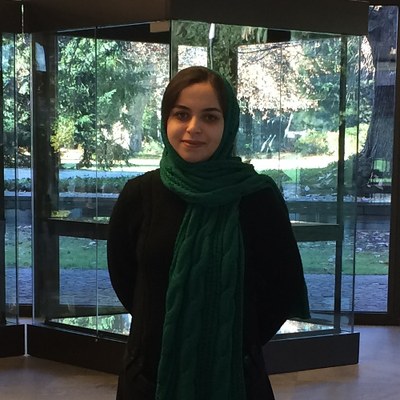Main Content
Student Reports of Winter School 2016
Asal Shahin, M.Sc. Economics, Tarbiat Modares University (Tehran)

"From the early first day of our arrival in Marburg the NAREM coordinator and students from CNMS welcomed us by showing different parts of the university and Marburg. Two weeks in picturesque Marburg packed with interesting courses by professors from Iranian universities and Philipps-University was an extraordinary experience for me in order to get to know and be familiar with the educational system in CNMS. The courses started by an institutional economics perspective, measuring economic well-being using life satisfaction subjects and continued by the topics: defining natural resource rents, addiction in Iran, economic sanctions, political economy of life satisfaction, natural resource curses, etc. The courses during these two weeks helped us to learn more about the tangible parts of the economics such as well-being which are highly related to psychological lives of individuals. In my personal point of view I feel as if the courses opened my eye and made me to think more deeply about life satisfaction. I am totally grateful for this unique opportunity helping me to extend my knowledge in economics. During our stay in Marburg, we had the chance to see some cultural sides of the town which helped us to know our peers and fellow students from Marburg and their traditions, excitement and wishes for the New Year ahead of us. Near the end of winter school we visited two governmental institutions: Federal Ministry for Economic Cooperation and Development (in Bonn) and European Central Bank (in Frankfurt). The visits gave us a different view of a different economy in comparison to a resource-based economy like Iran. The last session of the winter school followed by student’s presentations. In this session we tried our best to use the opportunity to talk about our research and group work and get the professor’s feedback which would be precious for our academic future. I am deeply hopeful for the continuation of these international academic exchanges between Iranian and German universities.“
Mehdi Ahmadi, M.Sc. Energy Economics, University of Tehran

“I personally think such programs have a big role in improving the knowledge of participants and this winter school was a big step especially for me to learn more about some new aspects of economics and also some relevant topics about my field of study, energy economics. Nowadays, natural resource management is an important issue for the global economy, and also the definition of life satisfaction which we used it in a practical approach impressed me and made me interested in this field of economics. I hope the inspirations of these courses help me for my future researches. In addition, during this workshop, I visited some cities and some economic institutions of Germany, and I faced with a new culture, a new language, and also new people which help me to find out about the method of European countries to manage their social and economic issues. So, the wonderful experiences of this journey will surely help me in future and I am so glad that I participated in this winter school program in Marburg, a little, beautiful, and lovely city. At the end I want to send my warm gratitude to Dr. Farzanegan and Dr. Faraji for all of their support and also to all of the participants of the winter school and I wish this program be held more powerful in the future.”
Mahsa Mesgarani, M.Sc. Energy Economics, Ferdowsi University of Mashhad

“Thanks to all the cooperators of the Natural Resource Management and Life Satisfaction Winter School, also to DAAD in order to provide such an event and a scientific atmosphere. It was a great experience for me to look more deeply what life satisfaction in theoretical and applied aspects really means and how it is affected in different countries considering cultural, behavioral, or social variations. It was precious for me, as I became aware about different aspects and dimensions of natural resources in countries endowed with oil, gas or other kinds of resources. Moreover, by having the opportunity to visit museums and some economic and financial centers such as BMZ in Bonn, it made me think profoundly about the question “Why my country should be ranked as a third world or a developing country?”. However, the lectures and experiments that were presented during the winter school enabled me to widen my viewpoints on subjects and variables that are involved in natural resource rich countries’ problems and the directions affecting their economies. Furthermore, one of the most interesting parts of the program was entering into dialogue with German students among whom were some students had the experience of living in Iran. We had the chance to benefit from their viewpoints on differences and commons between their own country and Iran. That really helped us to detect some key factors through which we can obtain a better success in academic courses. I hope this program lasts longer and let the other students take the same chance as well.”